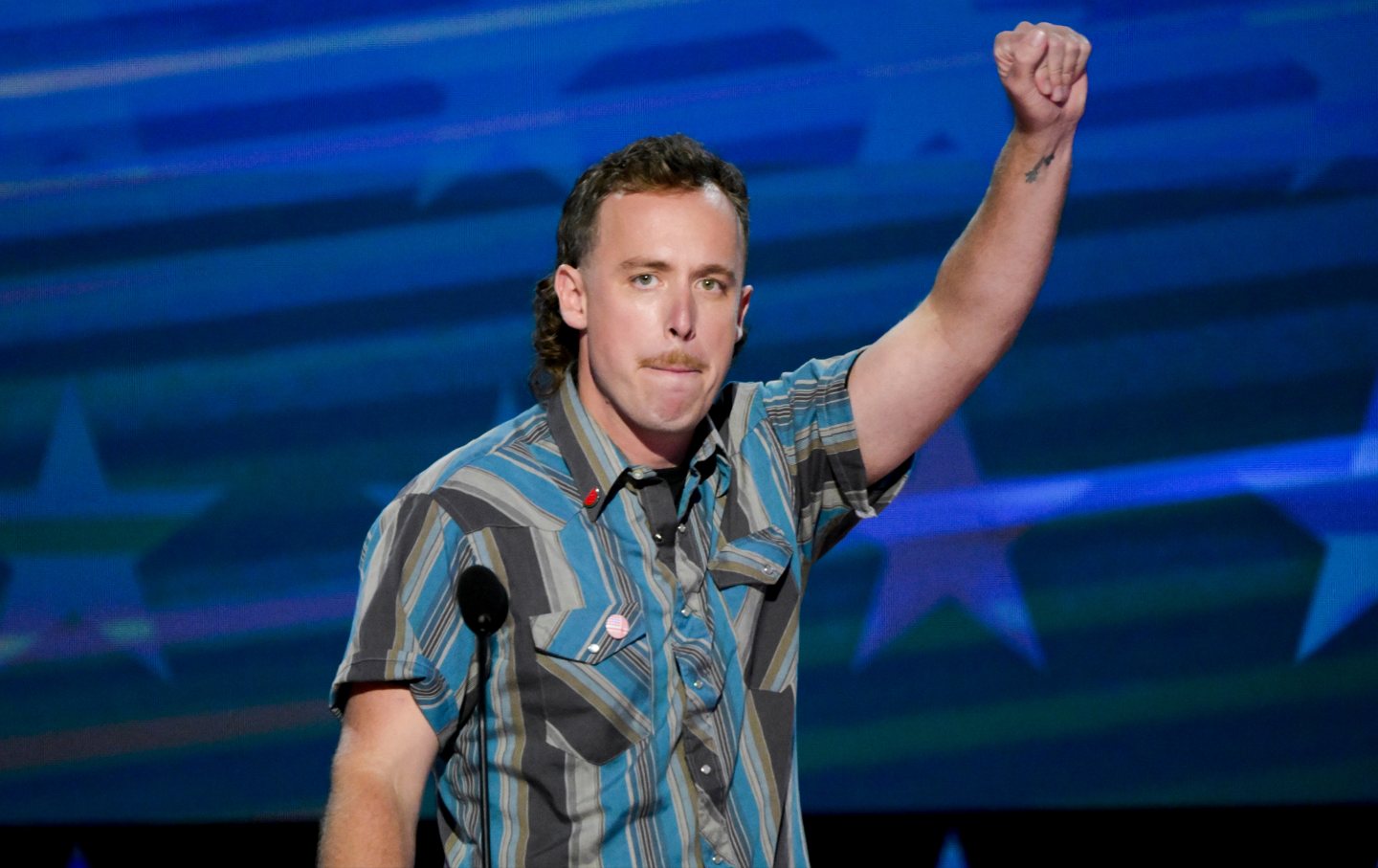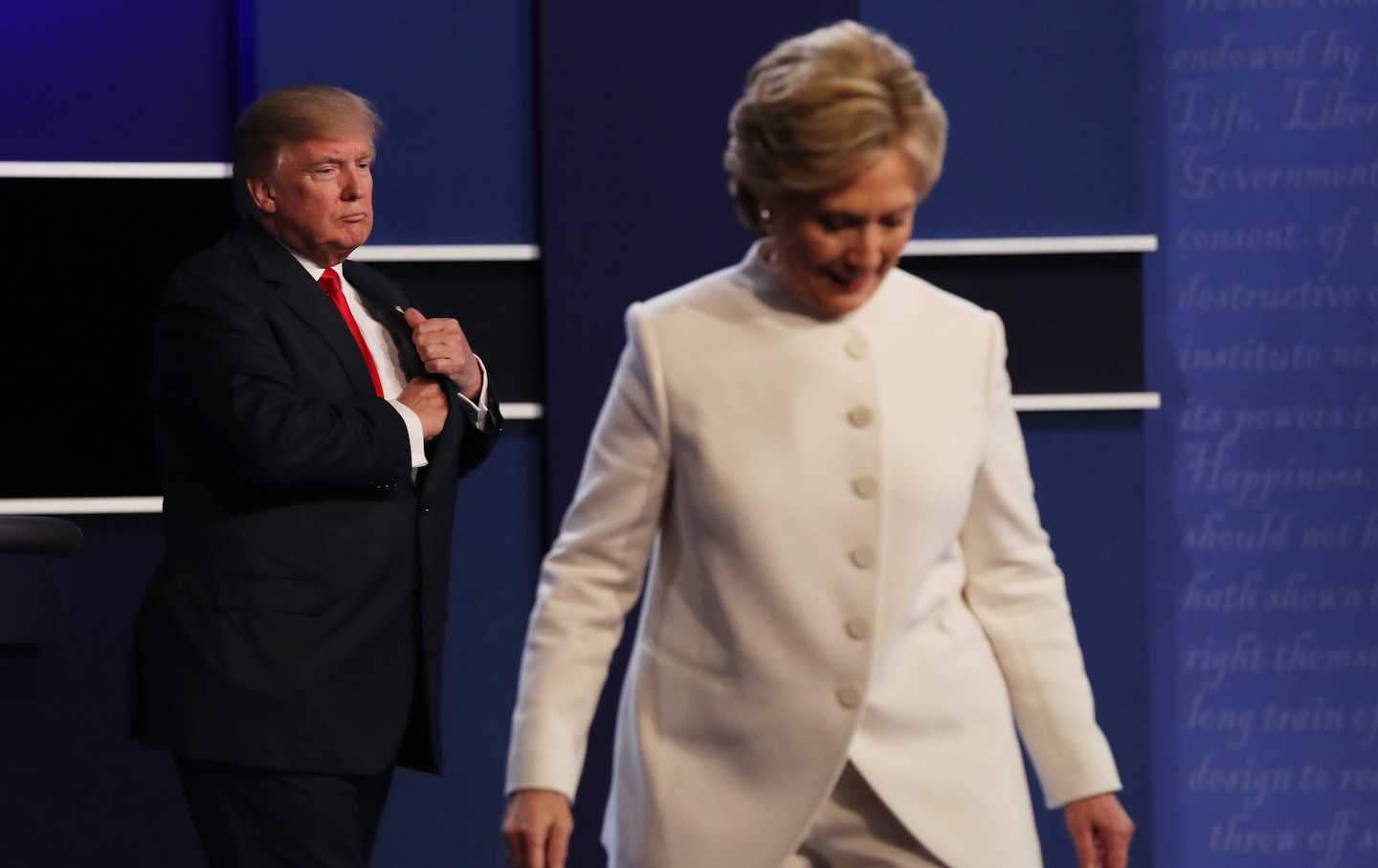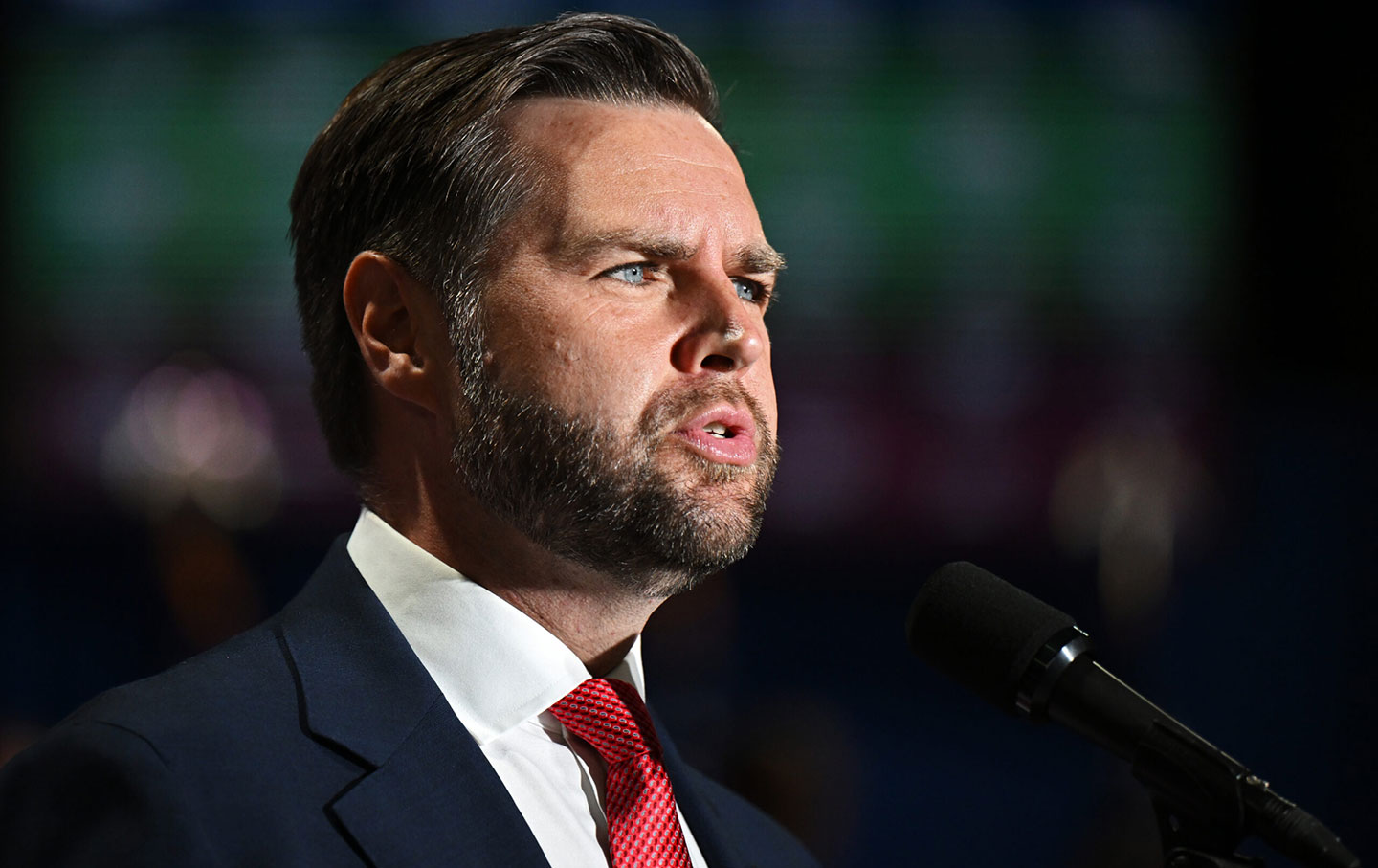Politics
/
August 27, 2024
This moment in history is almost too complex to be appreciated.
Oprah Winfrey departs after speaking on stage during the third day of the Democratic National Convention at the United Center on August 21 in Chicago.
(Photo by Andrew Harnik / Getty Images)
Black women have long understood the assignment in organizing for a cause, especially when the stakes are high. And we’ve always ensured that movements are a multigenerational and multiethnic effort; collective organizing is our superpower, especially when we are outnumbered and outspent.
Which is why as the unsung heroes of the Democratic Party, Black women didn’t miss the opportunity to showcase our fortitude and influence in Chicago last week. After all, Black women not only set the stage for Kamala Harris’s rise; the policies we have long pushed for are now an integral part of the national conversation.
When rumors first swirled about who would replace President Biden if he stepped down, Black women, who have consistently voted for Democrats, warned leadership within the party to not pass over Kamala Harris. Fast forward to July 21 and Biden immediately followed his announcement that he was dropping out of the race with an endorsement for the vice president. Within 12 hours of that announcement, Win with Black Women (WWBW), an intergenerational network of Black women leaders in the United States, kickstarted a new model for digital organizing for the newly announced Harris campaign. With more than 40,000 attendees present at its weekly meeting, WWBW not only changed the meeting capacity limits of Zoom; it also set off a cascade of fundraising calls across the nation among other affinity groups. To date, other groups that have organized around the campaign include White Women for Harris, White Dudes for Harris, Republicans for Harris, and Latinas for Harris—all groups critical for the Democrats to win up and down the ballot in November. In just one month, the Harris-Walz campaign raised a record-breaking $500 million, demonstrating the level of excitement and joy swirling around the vice president.
The enthusiasm has only become more infectious in the past two weeks. After Harris announced her running mate, Governor Tim Walz of Minnesota, both have continued to build momentum and electrify audiences across the country. Their big test as a joint ticket was the Democratic National Convention—a natural crescendo on their journey to November and another opportunity for Black women to show up and show out for Kamala Harris.
At the DNC, Black women prepared the stage, and America, for Harris to accept her presidential nomination. This was on full display from the very beginning with the chair of the 2024 Democratic National Convention, Minyon Moore, an activist and longtime political strategist, welcoming attendees. Moore’s rise within the Democratic Party has been characterized by historic firsts. She was a member of the group that advised President Biden to choose Harris as his running mate in 2020, and advised Biden to nominate Justice Ketanji Brown Jackson, the first Black woman to serve on the US Supreme Court in its 232-year history. Which is why, when tasked with orchestrating a convention ushering in the first woman of color nominee, she used the opportunity to highlight that the past, present, and future of the Democratic Party is Black women.
Throughout the week, we were reminded of the important roles Black women occupy at all levels of government. Black women such as Representatives Jasmine Crockett of Texas and Lauren Underwood of Illinois reminded America that Black women are not only trusted leaders in Congress but also among the fiercest defenders of democracy in their respective states and communities. Crockett and Underwood each offer distinct leadership styles, reminding America of the breadth of leadership Black women have to offer.
Current Issue

What’s more, the policy platforms of the Democratic Party also featured the stories of Black women. For abortion rights, standing before a large screen displaying the words “Our Fight For Reproductive Freedom,” Kaitlyn Joshua of Louisiana recounted how she was turned away by two emergency rooms while seeking care during a miscarriage. The inclusion of her story cannot be understated considering that the fight for reproductive justice and abortion access are championed by Black women, and Black women are more negatively impacted by the nation’s maternal care crisis than white women. Not to mention that Harris’s own campaign pushes for abortion rights, the reduction of maternal mortality, expanded access to contraception, and protection for fertility treatments such as in vitro fertilization.
In addition to abortion rights, a Black woman’s story became a focal point during the segment on gun safety and the party’s promise to protect children and families. On the final night of the convention, alongside other survivors of gun violence and family members of victims, Representative Lucy McBath shared that what inspired her to run for office was the fatal shooting of her 17-year-old son, Jordan Davis, in 2012. McBath has become a dedicated gun-safety advocate and helped form the activist group Mothers of the Movement alongside other mothers whose children were killed by gun violence or police brutality.
Other speeches from influential Black women showcased their collective political power and unrivaled influence among the electorate. Former first lady Michelle Obama, for example, presented a clear call to action to onlookers and rank and file Democrats: “Do something.” Oprah, who made her first appearance at the DNC, emphasized the stakes of the election while reminding people to not forget the “joy.”
The DNC and early days of the Harris-Walz campaign have shown us that Kamala Harris would not be here without Black women—not only those Black women in the party and across the movement but also the Black women who came before them. Maxine Waters, who has her own laudable legacy of activism and leadership, paid tribute to Fannie Lou Hamer, recalling Hamer’s historic speech at the 1964 Democratic convention. In one prescient moment during Waters’s speech, she said that “when the dust settles in November, and Americans of all stripes have elected her their president, I know she’ll be thinking about Fannie Lou Hamer.”
Or when Hillary Clinton, whose 2016 loss still stings for those who thought she’d be the first, paid tribute to Shirley Chisholm—whose legacy as the first Black candidate for a major-party presidential nomination and the first woman to run for the Democratic Party’s presidential nomination not only paved the way for both Clinton and Harris but is held up by all as the woman who made the first crack in the glass ceiling in our attempts to see a woman in the White House. Several other speakers, who took the stage, shared a story of their mother, grandmother, or the ancestors who laid the path on which the vice president is now being propelled forward.
DNC speakers using this opportunity to mark the historical contributions of Black women to the Democratic Party is noteworthy, to say the least. Given our society’s history of treating Black women with disdain, this moment is almost too complex to be appreciated. On the other hand, Black women have to continue navigating this political landscape carefully. Although we are being uplifted as everything seems to be going well, it’s only a matter of time before trouble arises, and we are blamed for whatever has gone wrong, as is too often the case.
Nonetheless, Black women have left an impenetrable mark on the 2024 DNC. To see the party embrace its first Black woman nominee as it did, it’s impossible not to feel the joy that Oprah and many of the speakers spoke about.
Can we count on you?
In the coming election, the fate of our democracy and fundamental civil rights are on the ballot. The conservative architects of Project 2025 are scheming to institutionalize Donald Trump’s authoritarian vision across all levels of government if he should win.
We’ve already seen events that fill us with both dread and cautious optimism—throughout it all, The Nation has been a bulwark against misinformation and an advocate for bold, principled perspectives. Our dedicated writers have sat down with Kamala Harris and Bernie Sanders for interviews, unpacked the shallow right-wing populist appeals of J.D. Vance, and debated the pathway for a Democratic victory in November.
Stories like these and the one you just read are vital at this critical juncture in our country’s history. Now more than ever, we need clear-eyed and deeply reported independent journalism to make sense of the headlines and sort fact from fiction. Donate today and join our 160-year legacy of speaking truth to power and uplifting the voices of grassroots advocates.
Throughout 2024 and what is likely the defining election of our lifetimes, we need your support to continue publishing the insightful journalism you rely on.
Thank you,
The Editors of The Nation
More from The Nation

Israel’s war on Gaza has resulted in over 40,000 deaths, including nearly 16,500 children, with more than 94,743 people injured, over 10,000 people missing, and millions displaced….
OppArt
/
Andrea Arroyo

John Russell told Democrats that they must “create a political home for working Americans fighting for control over their government, their workplaces, and their planet.”
John Nichols

Flailing against a new Democratic ticket, the former president is reverting to the same strategy he used against the only electoral opponent he’s ever defeated.
Chris Lehmann

Calling the Ohio senator “weird” may feel satisfying. Pundits have already dismissed him as a drag on the ticket. But the smarter play would still be to steal his thunder.
Editorial
/
Erica Etelson and Anthony Flaccavento

